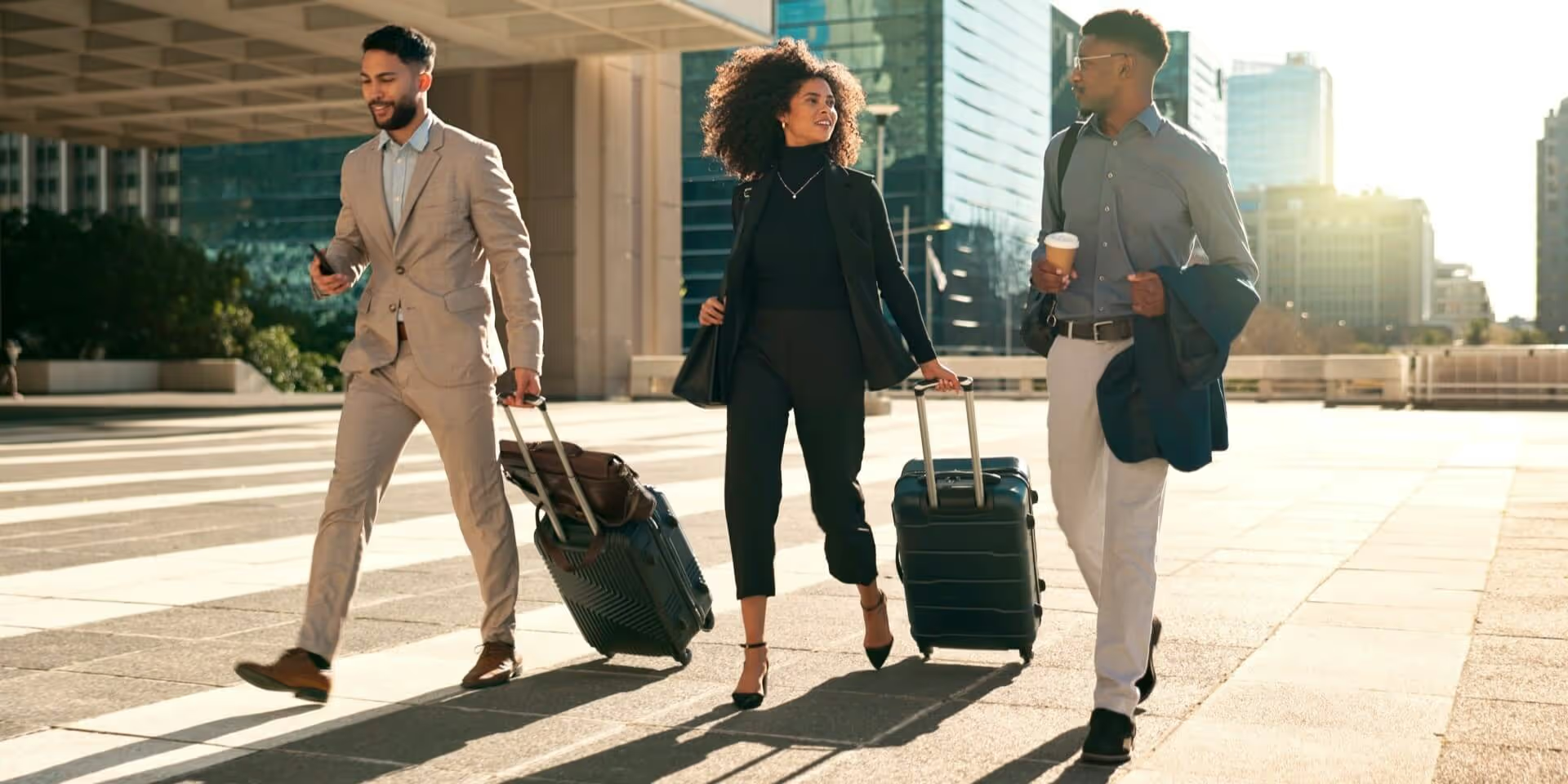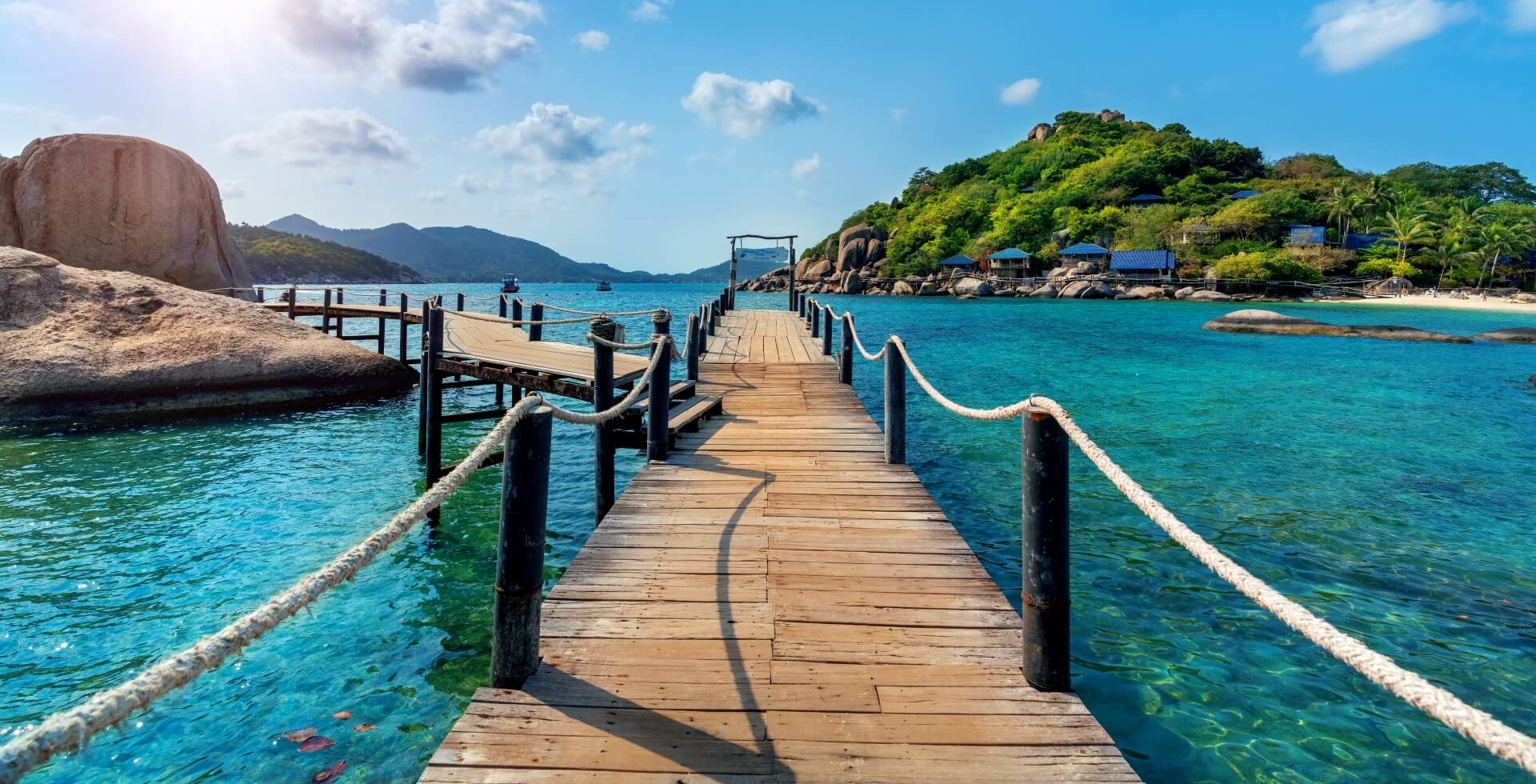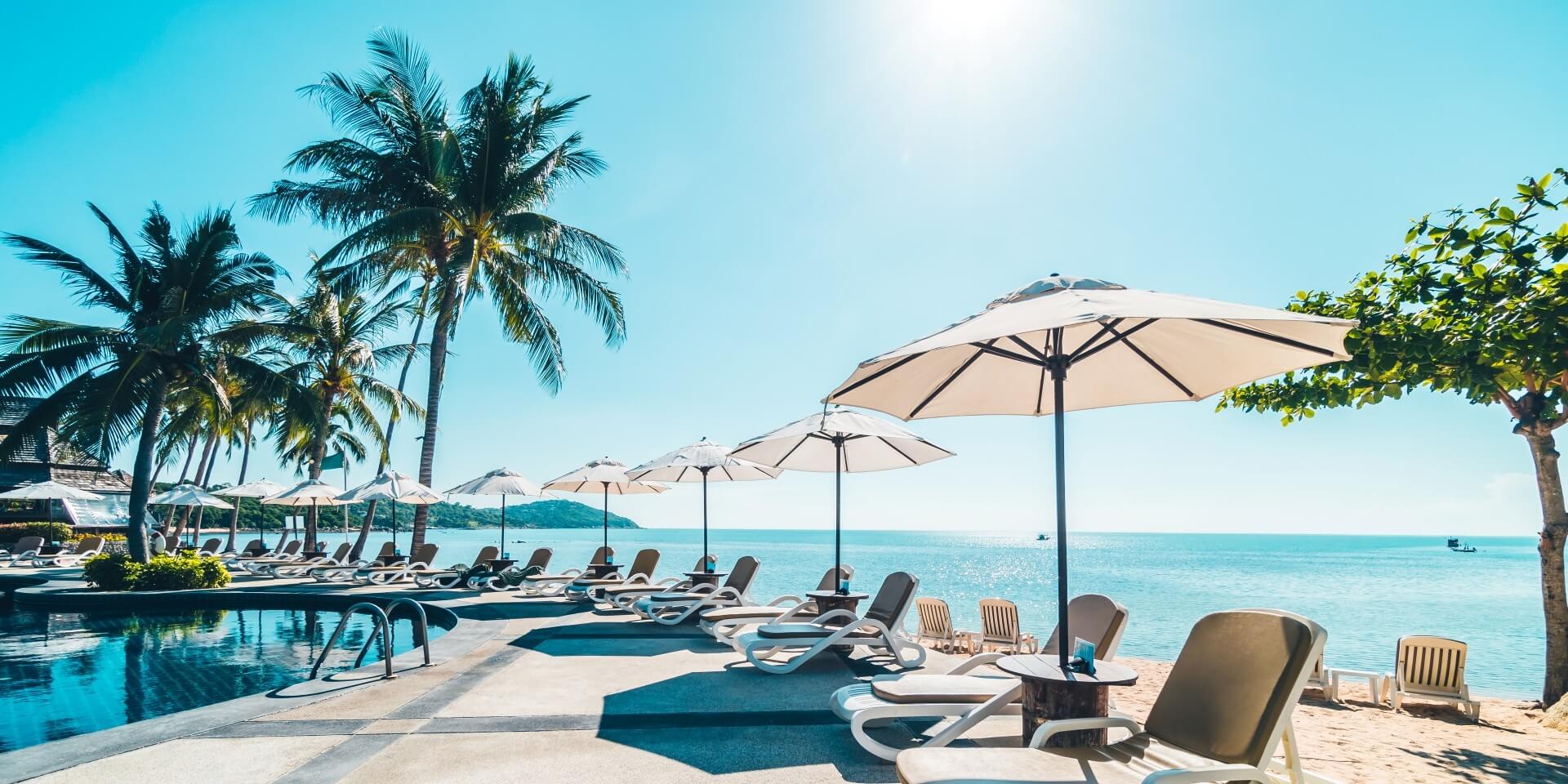Attracting business travellers can become a niche focus for travel companies, especially in a world where businesses are investing more in employee mobility and remote working solutions.
Corporate travellers expect different services compared to leisure travellers. They look for tailored experiences, seamless travel, and productivity-boosting environments.
Getting your brand to appeal to corporate travellers can set you apart from competitors. In this article, we'll explore the top 10 tips for attracting corporate travellers, offering actionable marketing strategies that boost both your brand presence and the travel experience.
1. Create a seamless booking experience
Corporate travellers value their time which means you need to focus on efficiency. A simple and easy-to-use booking process is essential, whether they’re using a mobile app, desktop, or third-party booking platform. Simplify the process by integrating advanced booking systems with features like:
- One-click booking for repeat trips.
- Integration with corporate travel management systems.
- Personalised itineraries based on the traveller’s history or preferences.
For companies looking to attract more business travellers, having an intuitive, user-friendly website or app that caters specifically to corporate needs is a must. Make sure that the design is responsive, navigation is intuitive, and travellers can easily manage bookings, amendments, and cancellations with minimal steps.
By focusing on the user experience (UX), you will present potential travellers with a seamless experience. A clean, visually appealing interface with intuitive navigation not only improves usability but also creates a professional, trust-building experience that reflects the efficiency your corporate clients expect.
2. Target the travel decision-makers
Marketing directly to corporate decision-makers ensures that your services are seen by those responsible for travel budgets. Large companies sometimes have in-house travel buyers, or businesses might outsource to travel management companies (TMC). Effective marketing strategies to target these decision-makers include:
- Hosting an event or offering exclusive deals for travel buyers to TMCs to establish a relationship with them.
- Creating targeted content that demonstrates the benefits of partnering with your travel brand.
- Optimising your website and social media content to directly target these decision-makers.
By positioning your travel brand as a solution for efficiency, cost-effectiveness, and employee well-being, you can attract key decision-makers who control corporate travel spending.
3. Offer business-focused packages
Business travellers often have different priorities compared to leisure travellers. Create travel packages specifically tailored to their needs, such as:
- Early check-ins or late check-outs to accommodate their schedules.
- Complimentary or discounted access to co-working spaces or hotel business centres.
- Free high-speed Wi-Fi and in-room technology to support remote working.
- Transportation options, like airport shuttles or discounted car rentals.
Highlighting these perks prominently on your client’s website or travel marketing materials will make it clear that they understand the business traveller’s requirements.
4. Improve brand presence on corporate travel platforms
Corporate travellers frequently rely on corporate travel booking platforms to plan their trips. Ensuring you have a strong presence on these platforms is critical to attracting this segment. If you use these types of platforms, you should:
- Optimise listings with clear and detailed information, highlighting amenities that cater to business travellers.
- Maintain updated availability and pricing information.
- Make sure all relevant certifications, including safety and hygiene practices, are clearly communicated on these platforms.
Partnering with corporate travel management platforms also opens up opportunities for bulk bookings and partnerships with larger organisations, which can secure long-term repeat business.

5. Focus on safety and well-being
Safety and well-being have always been essential for business travellers, but they’ve become even more crucial in the wake of COVID-19. Companies need reassurance that their employees are travelling in environments that prioritise health and safety. For your travel clients, this can mean:
- Showcasing cleaning and hygiene protocols in place at hotels, airports, and other transit points.
- Offering contactless check-ins and check-outs.
- Providing information about local healthcare facilities or telemedicine options.
Make safety and well-being a central part of your brand narrative. Not only does this build trust with corporate travellers, but it also demonstrates a responsible and forward-thinking approach to modern travel.
6. Personalise your offerings
Personalisation is key to creating a memorable travel experience for corporate travellers. By leveraging data insights from previous trips, preferences, or booking habits, you can tailor your services to meet individual needs. Examples include:
- Suggesting hotels near meeting locations based on previous business trips.
- Offering meal plans, transport options, or amenities based on preferences (e.g., fitness centres for wellness-focused travellers).
- Sending personalised emails with upcoming trips or recommendations for future travel based on past patterns.
A well-optimised customer relationship management (CRM) system can help your travel clients track this data and create more targeted campaigns, ultimately leading to increased loyalty and customer satisfaction among business travellers.
7. Create content that speaks to corporate travellers
The content that you produce is crucial in establishing your brand as the go-to solution for corporate travellers. Consider developing a range of business-focused content that resonates with this audience, including:
- Blog posts about the benefits of business travel.
- Tips for balancing work and travel or maintaining productivity on the road.
- Detailed guides to local business hubs, highlighting meeting spots, networking events, and accommodation options.
Help establish your brand as a thought leader by sharing insights or news relevant to corporate travel, such as emerging trends, case studies of companies that have benefited from booking through your platform, or interviews with business travellers on what they value most.
8. Optimise your content
Search engine optimisation (SEO) is vital for attracting corporate travellers who often start their search for accommodations, flights, or travel services online. Ensuring that your website ranks high for relevant keywords will significantly increase visibility and drive organic traffic. To optimise for corporate travel:
- Use targeted keywords like "business travel accommodations," "corporate travel deals," or "meeting-friendly hotels”.
- Create high-quality, business-focused content that addresses corporate traveller needs, such as guides to business hubs or tips for stress-free business travel.
- Implement local SEO tactics, optimising for location-based searches where corporate travellers are likely to stay or work.
Additionally, your website must be mobile-optimised and load quickly, as many corporate travellers conduct searches on mobile devices. An effective SEO strategy will help your travel brand capture the attention of business travellers at the very start of their journey.
9. Introduce loyalty programs and corporate discounts
Corporate travellers are often repeat customers. Developing strong loyalty programs or offering corporate discount schemes can make a big difference in securing repeat business. Implement or enhance loyalty programs to include features such as:
- Points that are redeemable for free flights, upgrades, or stays.
- Tiered memberships offering different perks, from room upgrades to priority check-ins.
- Customisable packages for long-term business travellers or frequent fliers.
Additionally, consider offering negotiated rates or discounts to corporate clients, which can be marketed as an exclusive benefit of booking through your website.

10. Prioritise sustainable travel solutions
Many businesses are increasingly looking to incorporate sustainability into their travel policies. Corporate social responsibility (CSR) initiatives now often include mandates to reduce carbon footprints, and travel companies that offer eco-friendly solutions will stand out to corporate clients. You can appeal to this need by:
- Promoting partnerships with eco-friendly hotels or transportation providers.
- Including information about sustainability practices, such as the use of renewable energy, water conservation efforts, or plastic reduction initiatives.
Incorporate sustainable travel options into your branding and travel marketing efforts to appeal to companies that are aligning their business travel policies with environmental goals. Highlighting your dedication to responsible and eco-conscious travel will make your brand an attractive partner for forward-thinking organisations.
Final thoughts
By incorporating these top 10 tips, your travel business can effectively target and attract corporate travellers while improving your brand positioning as a trusted travel partner for businesses. Tailoring your offerings to meet the needs of modern business travellers will not only lead to increased bookings but also create long-term loyalty and corporate partnerships.
Are you ready to grow your corporate client base? Contact Boost today to find out how we can help you with a comprehensive digital marketing strategy aimed at corporate travellers.




